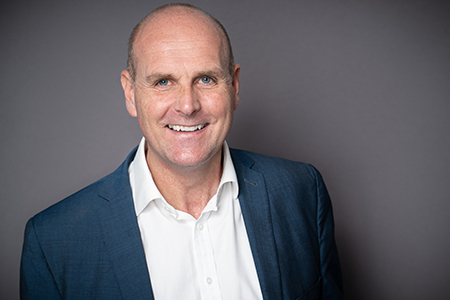Green Dentistry: a practical guide - Part 3
Denplan’s Head Dental Officer Louis Mackenzie discusses the environmental impact of dental care, with a particular focus on minimising waste.

Published on 04/10/22
By the Denplan Practice Team
The Earth’s climate is changing. In the UK and other northerly latitudes, seasonal transitions have become blurred and numerous extreme weather events are occurring here and devastating countries across the globe. In 2021, the World Health Organisation (WHO) stated that climate change is ‘the single biggest health threat facing humanity’.
The global temperature has increased by 1.0°C in the last 100 years and without human intervention it is predicted to rise by a further 2.0-6.0°C before the end of this century. For every decade since 1979, 5-10% of the arctic ice cap has irreversibly melted. Ironically this was the year of the world’s first climate conference and as part of the latest (COP26 - conference of the parties), 50 countries signed a pledge to develop low-carbon healthcare systems.
Healthcare is an extremely important factor, because if it were a single country, it would be the fifth biggest contributor to greenhouse gas emissions globally, behind China (27%), the USA (11%), India (6%) and Russia (4%).
The NHS is the largest single employer in Europe. It comprises 7% of the UK economy, accounts for 3.5% of all road traffic and is responsible for 4% of the nation's carbon emissions (>20 million tonnes/year!). All four nations have committed to a net zero NHS emissions target by 2045.
Procurement is the main contributor to the NHS’s carbon footprint at 62%. This differs from dentistry, where the three main carbon emission sources are:
Patient and staff travel. 64.5%
Procurement (e.g. materials, equipment, packaging and transport). 19%
Energy (electricity and gas). 15.3%
In the hierarchy of sustainability measures, analysing and reducing procurement is a vital component of any carbon reduction strategy, second only to prevention.

Hierarchy of sustainable healthcare measures
Prevention
Prevention is the single most important factor in improving sustainability in dentistry as this would reduce the need for travel, manufacture and use of dental materials and waste production. Fortunately, effective environmental strategies also reflect the main goals of contemporary clinical dentistry:
Oral health promotion
Disease prevention
Reduction in the amount of operative/restorative procedures
High-quality restorative interventions that are long-lasting
UK-wide water fluoridation
Oral healthcare products also have a significant impact on the environment. In the UK, 300 million plastic toothpaste tubes go into landfill annually, with each one taking an average of 500 years to biodegrade to micro- and nano-plastics and containing an average of 10% unused toothpaste.
As a result, innovative non-plastic oral hygiene products are being created such as bamboo/plant-based toothbrushes, biodegradable floss/dispensers, toothpaste tablets in glass jars and even fully biodegradable powered toothbrushes.

Toothpaste tablets from Pärla designed by a team led by Denplan dentist Simon Chard

Fully biodegradable powered toothbrush Bio Max™ designed by a team led by Denplan dentist Abraham McCarthy
Sustainable procurement
Sustainable procurement refers to how businesses can identify and reduce the environmental impacts of their supply chains. This includes identifying suppliers who are low-impact, fair trade and environmentally friendly.
The global medical equipment industry is worth a gigantic £300 billion per year, but most products follow a linear economy, which is not sustainable.

The unsustainable linear economy
As dental teams are generally free to source materials and equipment from any supplier/manufacturer that they choose, demand for more sustainable products will stimulate the wider dental industry to share environmental responsibility for more sustainable production and distribution and create a more circular economy.

Excessive packaging for 15 dental burs

0.43m² paper instructions for one bottle of bonding resin, translated into 17 languages!
Modern slavery
As well as environmental factors, social and ethical considerations are also very important when purchasing goods.
It is an upsetting fact that a very significant amount of healthcare equipment is produced under forced labour conditions e.g. by children, typically 12-years old, who are not allowed to leave or go to school, average 12-hour working days with one day off per month, are poorly paid with deductions for food and live in poor, cramped accommodation such as shipping containers.
There is increased scrutiny on healthcare supply chains and legislation is expected to ensure that there are effective labour, safety and human rights for workers within the developing world.
Energy
The UK is celebrated by the international community as a world leader in decarbonisation of energy supplies, having reducing emissions by 42% between 1990 and 2017, while growing the economy by 75%.
The table below lists work (and domestic) green energy options that offer sustainability and economic benefits.
The professional challenges presented by the COVID-19 pandemic have demonstrated the adaptability and resourcefulness of UK dental practice teams like never before. The versatile, dynamic business structure of independent dental practices enables the creativity and innovation that will be essential for developments in sustainability.
While climate change presents the biggest global health threat of the 21st century, it is also healthcare’s greatest opportunity. Dentistry has the potential to lead the field in sustainable healthcare and serve as a model for other sectors, giving real hope to current and future generations.
The table below lists work (and domestic) green energy options that offer sustainability and economic benefits.

Louis Mackenzie
Our late Head Dental Officer at Denplan, General Dental Practitioner and Clinical Lecturer, Birmingham School of Dentistry.
